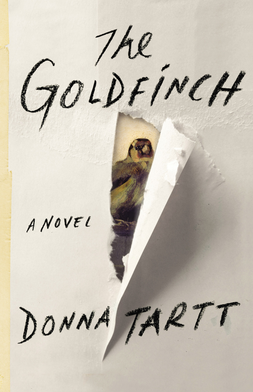
The pressure was on for our Donna. After her unputdownable debut, The Secret History, she sort of dropped off the radar, producing only one other (very disappointing) novel since 1992. This one was her comeback tour, and if your memory doesn’t stretch back to mid-last year, it was so hyped that it was almost impossible to imagine it living up to expectations.
Well, I don’t know. For the first half of it, I was engrossed. It was basically “David Copperfield goes to Vegas”, and if you know me, you know my feels for Copperfield. The prose was impeccable, and combined beautifully with the sense of events overwhelming the teenage narrator. I love novels that capture the sense of disenfranchisement felt by child protagonists, and this one delivered*.
Then something happened: he grew up. The second half of the novel jumped ahead a few years, and suddenly, I lost interest. The same thing happens to me with TV shows in which I don’t feel any sympathy for the main characters, and is the reason I didn’t persist with Breaking Bad, for instance, or House of Cards. I just don’t give a shit what happens. In The Goldfinch, the child that was grows up into a basically terrible human adult who has made a series of bad decisions arising from his selfishness and dishonesty. I rolled my eyes, gritted my teeth, and kept reading, but the damage had been done. Terry Pratchett died during this period, and my moral obligation to read a number of Discworld novels provided a welcome escape from an inwardly spiralling prison of the protagonist’s self-generated consequences.
In the end, I surprised even myself by managing to get to the end. To be honest, the events leading to the conclusion ramped up a bit and I became interested again, especially once it began to be clear that there was some moral complexity left in the hero. I honestly don’t know whether to recommend this book or not. Since others seem to like House of Cards, I’m going to say: go for it. It doesn’t have the same frantic energy of The Secret History (though that might get a bit much in a novel of this length), but the sense of paranoia is similar, and I’m comfortable saying that Tartt seems to have found her stride again.
*If this is something that also appeals to you, Kate Atkinson does it beautifully too.